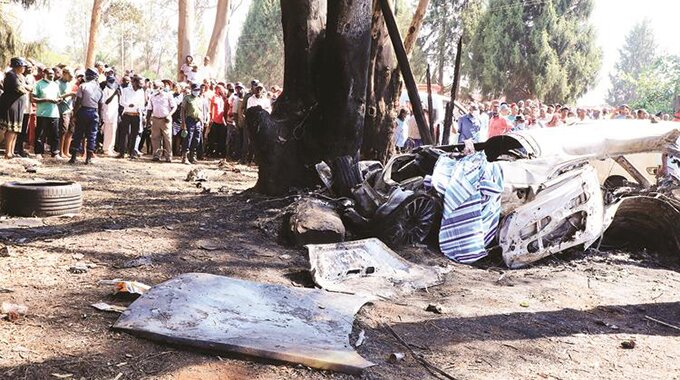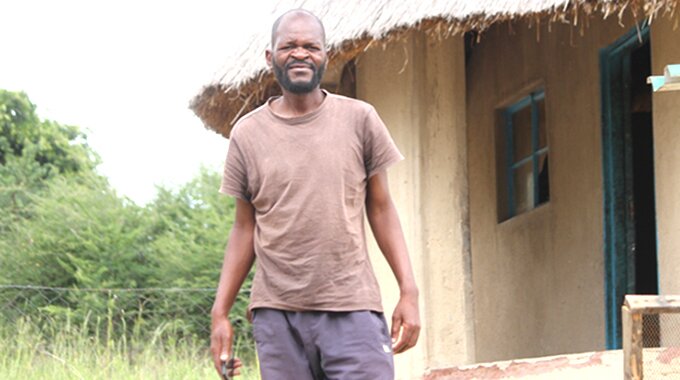Happy birthday Pele, like homeless Shakhtar,
you’re a symbol of light in a world of darkness….hopefully, Loga and his Warriors have been picking some key lessons
LET’S call it the ‘Miracle in Madrid’ – football parading every angle of its unrivalled beauty, every touch of its remarkable intensity and every reason why it generates so much popularity.
Or, maybe, let’s just call it the ‘Madness of Madrid’ — football exhibiting every inch of its unpredictability, every side of its incredibility and every reason why it’s such a very seductive sport.
We can even call it the ‘Magic of Madrid’ — football reminding us why it will always humble us, whenever we believe we have mastered it, mocking all those who claim to be its experts.
And, of course, always providing another fine chapter to charm those who believe in its volatility.
A game of such irresistible beauty it can never to be taken for granted, irrespective of the occasion, irrespective of the opponents, irrespective of form, or the lack of it, and irrespective of the odds.
Advertisement
So, there we were, on Wednesday night, watching from around a world in turmoil, battered by coronavirus, desperate for something to cheer its shattered spirits, crying out for a rainbow of light, in a skyline of darkness.
An oasis of hope, in a desert of hopelessness, an island of joy in a raging ocean of sadness, a reason for us to laugh again and, more importantly, for us to believe again.
That, no matter the challenges life is throwing at us, in these grim times of Covid-19, we will ultimately conquer.
Real Madrid, the record 13-times European Champions, the FIFA Club of the Century, the ultimate symbol of football aristocracy, were starting their latest adventure to capture a crown which, more than any other title, has become synonymous with their global franchise.
Zinedine Zidane, the only coach to win three consecutive Champions League titles, was in their corner, starting the campaign to win his fourth title, in five years, to cement a legacy of greatness, which he has already crafted for himself.
The opponents were Shakhtar Donetsk, a homeless Ukrainian football club, who have never played at home, in their US$425m Donbassa Arena in Donetsk, since May 2014.
Forced to flee the bitter military conflict in their hometown, in the eastern part of Ukraine, which has claimed the lives of more than 15 000 people, Shakhtar have been transformed into nomads, who play their matches in various cities, across their country.
No Ukrainian side, since the turn of the millennium, had ever beaten Real Madrid in the Champions League.
It would be a routine Real Madrid victory, many of us thought, and the only question, it appeared, was not about whether Zidane’s men would win but by how many goals.
But, by the time the referee blew his whistle to bring the first half to close, Shakhtar were leading mighty Real Madrid 3-0.
Advertisement
And, by the end of the match, Shakhtar had become the first Ukrainian club to beat Real Madrid, in the Champions League, in 21 years, after an impressive 3-2 victory right in the heart of the Spanish capital.
It’s difficult, if not impossible, if you are a true football fan, not to have a little pocket of space, in your heart, where you reserve some special love for Shakhtar Donetsk.
And, in those 45 minutes of undiluted magic, where they played with both freedom and style, making a mockery of the history, and pedigree, they gave us more reasons to love them.
For a club which haven’t played in their home city, and home ground, for half-a-dozen years, it’s remarkable that Shakhtar have constantly been ranked among the best 20 football clubs in Europe, by UEFA.
It’s even incredible that they have won 13 Ukraine Premiership titles, after the turn of the millennium, including nine in the last 11 years, and seven Ukraine Cups, in the past decade.
Maybe, that’s what Shakhtar are all about.
This amazing football club which appear to have been created to perfect the art of defying the odds, which other teams would find insurmountable, to make a mockery of hurdles in their path, which other clubs would find impossible to clear.
And, to transform adversity into triumph.
On Wednesday night, they provided us with another amazing chapter of their Cinderella adventure and, of all cities, they chose Madrid, for the setting, and — of all teams — they chose mighty Real, for the opponents.
Football, what a game, what a sport.
Advertisement
FROM THE GHOSTS OF LVIV TO THE MIRACLE OF MADRID
Established in May 1936, Shakhtar Donetsk have their roots in the vast coalfields of eastern Ukraine, closer to the border with Russia.
Like the legendary Pele, who celebrated his 80th birthday yesterday, Shakhtar are a child who were born as the darks clouds of World War II gathered over the horizon.
Shakhtar were established just three years after Hitler became Chancellor of Germany, at a time when the fiery Nazi leader was already planning to drag the world into that global military conflict.
And, like the great Brazilian, Shakhtar have been using their football excellence to cast a light on a world desperately in need of a refreshing feel-good story.
Pele’s 80th birthday yesterday comes in the year the world is marking 75 years after the guns finally fell silent, and the massive bombardment ended, around the globe.
And, during and after his career, the great Brazilian did more than just play football but spread peace around our broken world.
“Between one and two million people died during Nigerian Civil War from 1967 to 1970,’’ FIFA noted on their official website yesterday as the world football governing body celebrated his birthday.
“Astonishingly, a 48-hour ceasefire was called between the Nigerian Government and the secessionist state of Biafra in 1969 so they could watch Pele and Santos draw 2-2 with the Nigerian Super Eagles.’’
British journalist, Glenn Moore, noted in an article published in The Telegraph two years ago that Pele was more than just a football player.
“As his career progressed from potential into greatness, and he breached those defences more than a thousand times, he began to break down more significant barriers, off the pitch, from spreading football’s gospel to halting a civil war,’’ Moore wrote.
“Pele, perhaps more than anyone, is responsible for football’s global dominance but he also broke down barriers, at a personal level, and he is still doing it, as his new short film ‘22 Languages for Mastercard’ proves.
“It shows how football can unite a divided world by bringing together 22 strangers and nationalities.
“And, if his charity work, with an emphasis on organisations supporting children such as UNICEF and Great Ormond Street Hospital, is well known, less so are the individual tales.’’
There are some things we seem to take for granted, like the importance of peace in the world, somehow forgetting that, when World War II broke out, our beautiful game disappeared from the radar around the world.
It became a luxury, something which the world could do without because, during those dark days and scary nights, where there was very little difference between life and death, the important things were put into perspective.
Pele came across as a special gift from the Lord, to help in healing and reuniting the divided world, a form of football missionary, the one no one could hate.
Because, even if you are a Devil, you can’t help but fall in love with a 17-year-old who not only scores, in the World Cup final, but helps his country take the prestigious trophy home.
Shakhtar Donetsk appear to be on such a similar special mission — the club chosen to use the power of football to cast a light that shines through the darkness which continues to stalk our world.
For, how do we explain that, when they were forced to abandon their home, Shakhtar ended up playing their games in their adopted home of Lviv, the largest city in western Ukraine, closer to the border with Poland?
Lviv has a dark past because, in this city, when the Nazis occupied it, its huge Jewish population, which at time made up 32 percent of the residents, was annihilated.
Its number had swollen to more than 100 000, after other Jews feeling the Nazis in occupied Poland, arrived and turned it into their home.
By the time the Soviet Red Army forces drove out the Nazis, on July 21, 1944, only less than one percent of its Jewish population was still around, the majority having been killed for who they were.
THE IRONY, THE WORLD, THE GAME, THE POWERFUL LESSONS
Just about 440kms from Lviv, across the border into Poland, lies what used to be death camp of Treblinka, which was run by the Nazis, where about 800 000 people, mainly Jews, are said to have perished in the gas chambers.
It represented part of the dark heart of Nazi savagery and its true horror is probably best captured by Vassilly Grossman, who was a Jewish war correspondent from Ukraine, embedded with the Soviet Red Army, which captured and freed the camp.
“Can we find, within us, the strength to imagine what the people in these chambers felt, what they experienced during their last minutes of life?’’ Grossman wrote.
“All we know is that they cannot speak now, covered by a last clammy mortal sweat, packed so tight that their bones cracked and their crushed rib cages were barely able to breathe, they stood pressed against one another, they stood as if they were a single human being.
“A young woman, her tongue going numb, asks, ‘Why am I being suffocated? Why can’t I love and have children?” Heads spin. Throats choke. What are the pictures now passing before people’s glassy dying eyes?
“Pictures of childhood? Of the happy days of peace? Of the last terrible journey? Of the mocking face of the SS (Schutzstaffel) man in that first square by the station, consciousness dims, it is the moment of the last agony.’’
The irony of Shakhtar could actually find refuge, in the shadow of Treblinka, to write one of football’s greatest stories — in the year the globe is marking 75 years after the end of World War II – has certainly not been lost on many seasoned analysts and historians.
That homeless Shakhtar, driven from home by war, could, along the way, find transform Lviv, as one of their bases, to launch their amazing Champions League adventure which, on Wednesday night, culminated in their giant-killing act in Madrid, is probably a miracle.
Something that, without a doubt, gave Pele — on the occasion of his 80th birthday yesterday — a reason to smile because, just as he did as a 17-year-old boy in Sweden in ‘58, his beautiful game continues to give this broken world with some of its finest feel-good stories.
What made Shakhtar’s victory on Wednesday night even more impressive, was that they arrived in Madrid without 13 of their regular first-team players, who had tested positive for Covid-19.
Many football clubs, in their predicament, would have found comfort in asking the authorities to forfeit their game, give Real Madrid the three points because, after all, they were going to lose.
But, where others would have seen a range of mountains, which just couldn’t be scaled, Shakhtar saw an opportunity to try and make another big statement.
To remind the world that they have not come this far, and conquered all these challenges, without having the steely character which has now become part of their identity.
Two of the goal-scorers on Wednesday night, Manor Solomon (born in July ’99) and Tete (born in February 2000), were not even born, when the last Ukrainian side found a way to beat Real Madrid.
Goalkeeper, Anatolii Trubin, at the age of 19 years 81 days, became the second youngest ‘keeper to start, in a match against Real Madrid, in the Champions League.
And, as I watched them, I kept asking myself, are my Warriors also watching all this?
If so, what are the lessons, which my boys are picking, from watching this David, bringing down this Goliath, especially now that we are in the countdown to two battles, within just a few days, against African football’s best national team?
A team whose players include Riyad Mahrez, Isamael Bennacer, Ramy Bensebaini, Youcef Atal, Djamal Benlamri Youcef Belaili and Baghdad Bounedjah.
A team, which just last year alone, won 12 matches, drew four and lost none playing against the likes of Nigeria, Senegal (twice) and Cote d’Ivoire.
A team which, just last year alone, scored 33 goals and conceded just eight.
The team which, in the last AFCON qualifier, put five goals past the Zambians as if Chipolopolo had suddenly become a clone of South Sudan, an imitation of Sao Tome and Principe or a shadow of Chad.
Well, Warriors coach Loga just needs to get his men to watch Shakhtar Donetsk, to read about their history and appreciate how a homeless club from eastern Ukraine, even without 13 regular first-team players, can beat mighty Real in Madrid.
In any case, Loga is a Croat.
He knows how his country transformed itself, from one run by the Ustase terror group, a puppet regime of the Nazis during World War II, into a modern state which, even with a population of just four million, finished as runners-up at the last World Cup finals.
The final was played in Moscow, just about 1000km from Donetsk, the home Shakhtar abandoned six years ago, to become the homeless football missionaries now using football to preach the gospel that, like that Adidas advert, Impossible Is Nothing.
Happy 80th birthday Pele, in the year our Warriors are also celebrating 40 years representing their independent nation.
To God Be The Glory!
Peace to the GEPA Chief, the Big Fish, George Norton and all the Chakariboys in the struggle.
Come on Warriors!!!!!!!!!!!!!!!!!!!!!!!!!
Khamaldinhoooooooooooooooooooo!
Text Feedback — 0772545199
WhatsApp — 0772545199
Email — [email protected], [email protected]
You can also interact with me on Twitter — @Chakariboy, Facebook, Instagram — sharukor and every Wednesday night, at 9.45pm, when I join the legendary Charles “CNN’’ Mabika and producer Craig “Master Craig’’ Katsande on the ZBC television magazine programme, “Game Plan”
– HERALD








